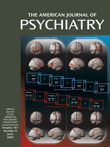Clinicians in Court: A Guide to Subpoenas, Depositions, Testifying, and Everything Else You Need to Know
Nonlawyer clinicians and therapists ensconced in any of the variant substrata that, broadly and collectively, constitute medicine and human services may be tempted to look warily askance at the legal system as an inscrutable and potentially disquieting realm. Indeed, whereas clinicians are accustomed to working therapeutically and collaboratively, the bedrock of the legal infrastructure is unabashedly adversarial in nature. In this vein, the masterful book Clinicians in Court should be a great practical boon to nonlawyers who desire some basic understanding of the unfamiliar province of law.
This well-sculpted vade mecum for clinicians and therapists has been crafted, in a lucid and highly practical fashion, by two authors having distinguished academic and professional pedigrees encompassing law, social work, and psychology. Guided by the overarching concern of providing the treating clinician or therapist with some at-least-rudimentary measure of understanding of the legal system, Barsky and Gould have succeeded in providing a sound road map, well-designed to guide clinicians obliged to traverse the vexing labyrinth of law. By helpfully demystifying some of the tools and armaments of law and litigation, the volume’s contents may lessen tensions and trepidations abounding at the interface of law and clinical practice. For clinicians and therapists seeking relief from law-related anxiety, this text may well prove to be an antidote.
Barsky and Gould adopt an absorbingly didactic approach to elucidating the vastly complex corpus of the law. Their artful examination is both insightful and practical. The glossary of briefly annotated law-related terms, the appendixes consisting of samples of instructive documents, and the many references are useful.
The range of topics is necessarily delimited. The volume focuses on practical strategies, potentially quite helpful to the clinician professionally enmeshed in the adversarial web of the law. Particularly, the many interlacing strands of law pertinent to the role of a witness in the legal context are assiduously unraveled. Selected topics include 1) clinician-witness preparation for legal proceedings, 2) the core mechanics of a legal hearing, 3) judicious maintenance of clinical records that potentially may become embroiled in litigious circumstances, 4) the prospective role of clinicians in law-rooted alternative forums to adjudication, 5) enthralling commentary regarding expert-witness-related topics, 6) a terse overview of documentary evidence, and 7) challenges and concerns for the clinician ensnared in a malpractice action.
Prospective readers should understand that fully deciphering the innumerable strands forming the fabric of the law is likely a Sisyphean task. Attendant difficulties are compounded by the ever-shifting nature of the law. Moreover, this volume, although written superbly, is plainly not a suitable surrogate for the finely honed counsel of legal professionals, applied with precision to individual, real-life cases.
In choosing to write about law for nonlawyers, Barsky and Gould have taken on the daunting task of safely traversing a course between the Scylla of writing in a too legally complicated manner for nonlawyer readers and the Charybdis of overdiluting the material presented to the point of unwittingly engendering a literary brew that is misleading in its simplicity. Happily, Barsky and Gould have brewed an excellent witness-preparation resource that should prove to be quite intellectually nourishing to a legion of readers who may choose to imbibe its edifying contents, including mental health and human services professionals as well as clinicians and therapists drawn from disparate professional backgrounds but potentially tethered to the law.



